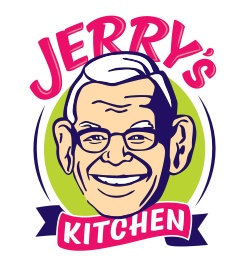What Happens to Your Brain When You Eat Junk Food (And Why We Crave It)
There is a reason why junk food has been coined as “junk food”. Because it is junk. It is related to many health problems such as high blood pressure and heart problems to name a few. Yet, we all still seem to crave it. Steven Witherly has found that there are two factors that make tasty food so pleasurable. The first factor is the senses you use when you are actually eating the food. These sensations include what it smells like, how it feels in your mouth, and what it tastes like. The second factor is what your food is actually made of. This means the carbohydrates, fats, and proteins the food contains. It is said that when it comes to junk food, manufacturers try to achieve the ideal combination of sugar, salt and fat that excites your brain, making you crave more.
Dynamic contrast and salivary response are two of the biggest contributors to why we crave junk food so much. Rapid food meltdown and vanishing caloric density is another important factor. This is because if your food is only in your mouth for a short period of time, then your brain will not think you are eating as much as you are. This ties in with our last reason junk food is so addictive: memories of past eating experiences. Your brain remembers when you eat something delicious. So, the next time you see, smell, or read about that food, you begin remembering memories of when you ate that food, creating physical responses such as salivation that makes you crave the food even more.
Luckily, we are not just telling you why junk food is addictive today, but how you can fight against these cravings.
- Use the “outer ring” strategy and the “5 ingredient rule” to buy healthier food
- Eat a variety of foods
- Find a better way to deal with your stress
_____
Most of us know that junk food is unhealthy. We know that poor nutrition is related to heart problems, high blood pressure, and a host of other health ailments. You might even know that studies show that eating junk food has been linked to increases in depression.
But if it’s so bad for us, why do we keep doing it?
There is an answer. And the science behind it will surprise you.

Photo Credit: telegraph.co.uk
Why We Crave Junk Food
Steven Witherly is a food scientist who has spent the last 20 years studying what makes certain foods more addictive (and tasty) than others. Much of the science that follows is from his excellent report, Why Humans Like Junk Food.
According to Witherly, when you eat tasty food, there are two factors that make the experience pleasurable.
First, there is the sensation of eating the food. This includes what it tastes like (salty, sweet, umami, etc.), what it smells like, and how it feels in your mouth. This last quality — known as “orosensation” — can be particularly important. Food companies will spend millions of dollars to discover the most satisfying level of crunch in a potato chip. Their scientists will test for the perfect amount of fizzle in a soda. These factors all combine to create the sensation that your brain associates with a particular food or drink.
The second factor is the actual macronutrient makeup of the food — the blend of proteins, fats, and carbohydrates that it contains. In the case of junk food, food manufacturers are looking for a perfect combination of salt, sugar, and fat that excites your brain and gets you coming back for more.














